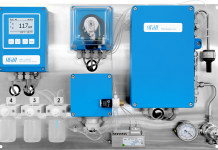Since the last EU REACH Registration deadline, which enabled companies putting low volume substances on the market with the pre-registration numbers until 31 May 2018 ended, communications up and down the supply chain have increased enormously.
The Transitional period of 10 years has finished which means full REACH compliance is expected. This affected many companies including formulators supplying chemicals from all over the world with price advantages. Companies formulating outside of the EU are in need of concrete proof of REACH compliance for the supplied chemicals that are used in their formulations. It may seem like an easy task, however it is not as easy as it looks, especially when the suppliers are manufacturers outside the EU and when confidential information not to be shared with the customers comes into the picture. Although this was expected and very well known, that all substances in the EU market must be fully registered, some companies are still having difficulty as a result of the increased demand of REACH compliance proof for their products by the EU importers.
Meanwhile, Turkish manufacturers putting chemicals on the EU/EEA market are constantly facing the same conditions and obligations to comply with the EU REACH Regulation. On the other hand, both Turkish manufacturers, importers and companies exporting to Turkey have recently faced the obligation to comply with Turkish REACH Regulation, KKDIK.
KKDIK officially entered into force on 23rd December 2017 with the purpose of aligning Turkish chemicals regulatory management to that of the EU. Despite the fact that KKDIK is basically the translation of the EU REACH Regulations, some differences need bringing to attention. The major difference between EU REACH and KKDIK is that the pre-registration period is three years until the end of 2020 and a three years time frame is given for registration period until the end of 2023 for all tonnage bands, regardless of the hazard classification of the substance. This clearly means that all substances must be registered during this transitional period.
Three years is a short period of time to register considering registration dossiers must be in Turkish, prepared via the online system KKS (Kimyasal Kayıt Sistemi), implemented by the Ministry of Environment and Urbanization (MoEU) as a hybrid of REACH-IT and an older version of IUCLID. MoEU is often working on updates to KKS for the online system to cope with all the entries which are currently pre-registrations and Classification&Labelling notifications into the online system.
EU/EEA had 10 years of transitional period while Turkey has only six years for full KKDIK compliance. All this points out that pre-registrations need to be done quickly and preparations for registration have to start now. Considering that the data requirements are exactly the same with the EU REACH requirements and ownership of the data belongs to the EU Consortia, registration dossier preparations will take quite a lot of commuication with the consortia in the EU and the SIEF members of KKDIK for the same substance. Time is limited so actions to be taken either as a manufacturer outside of Turkey putting chemicals into Turkish market, or as a local manufacturer, importer must be considered carefully. The organisational structure of the companies and commercial aspects as well as flow of chemicals to Turkey per legal entity must be considered before making a decision to (pre)-register.
The Only Representative (OR) role and definition (KKDIK – Article 9) in the regulation is identical with the EU REACH Regulation (Article 8). Non-Turkish manufacturers putting chemicals on the Turkish market must appoint an OR to comply with the obligation to (pre)-register. RGS recommends non-Turkish manufacturers make a thorough investigation when appointing their OR. There are currently many local consultants popping up with no REACH experience at all who are planning to give undervalued local OR services with non-qualified human resources. Companies planning to register substances must join the pre-SIEFs now to get ready for registration and be involved in the establishment of consortia. OR plays a key role, as incorrect interpretation of the Turkish regulations and misleading information, as well as wrong advice on actions to take at the Substance Information Exchange Forums (SIEFs), may lead to loss of money and waste of time.
Enforcement and inspections are frequently required when it comes to KKDIK. According to Article 62 of KKDIK, inspections regarding Article 46 (authorization) and Article 57 (restrictions) shall be conducted by the relevant public institutions. It has already been reported that Turkish customs authorities have started sporadic inspections, and some products tested according to KKDIK restrictions have been rejected by the Customs Authorities. Inspections will increase with newly trained inspectors joining, and consequently it appears that Turkish importers are increasingly asking their suppliers for proof of KKDIK pre-registration.
REACH Global Services S.A. celebrates 10 years of EU Chemicals Regulatory Compliance servicing with hundreds of clients all over the world. Do not hesitate to contact RGS, if you need compliance with Turkish Chemicals Laws or more details on our services and the status of your substances.
Dr. Yaprak Yuzak Kucukvar
RGS Turkey Branch Manager














